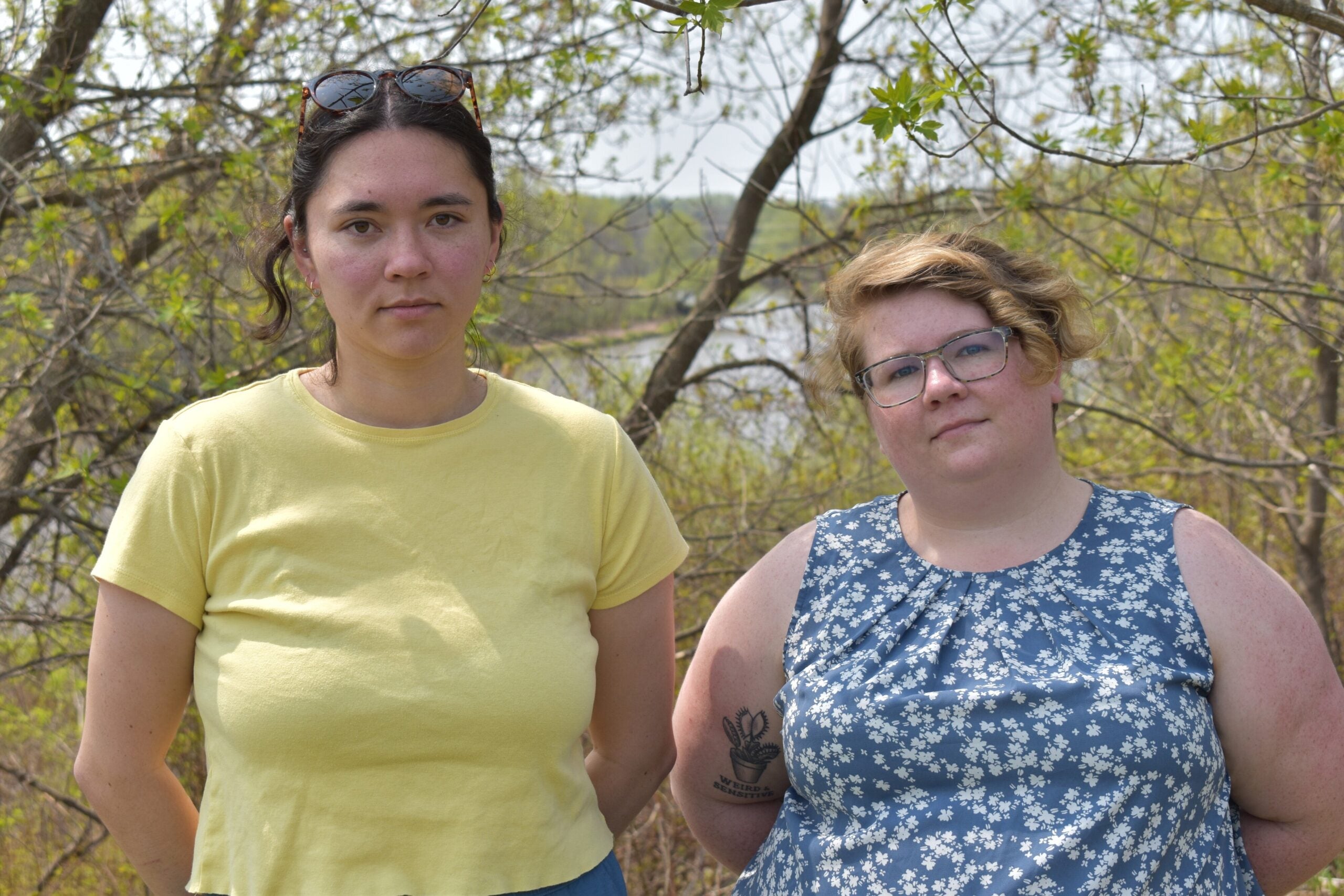The Wisconsin Supreme Court heard oral arguments Monday over a former utility regulator’s challenge to subpoenas issued against him in a case targeting the Public Service Commission’s approval of a controversial transmission line.
The Driftless Area Land Conservancy, Wisconsin Wildlife Federation and local governments sued the Public Service Commission to block construction of the $492 million Cardinal-Hickory Creek transmission line that would run from Dane County to Dubuque County, Iowa. The line is being built by American Transmission Company, ITC Midwest and Dairyland Power Cooperative.
The groups allege former commissioner Mike Huebsch’s relationships with employees of the project’s owners created an appearance of bias when the PSC unanimously approved the project. The groups issued a subpoena to inspect Huebsch’s phone records after discovery of encrypted messages, which the former commissioner and lawmaker appealed. But they later withdrew that request and issued a new subpoena that demanded Huebsch testify in court.
News with a little more humanity
WPR’s “Wisconsin Today” newsletter keeps you connected to the state you love without feeling overwhelmed. No paywall. No agenda. No corporate filter.
Dane County Judge Jacob Frost issued a ruling in May that the appearance of bias by just one commissioner would taint the entire proceeding, requiring him to revoke and remand the decision for further review.
Huebsch’s attorney Ryan Walsh argued neither subpoena can be pursued because Huebsch and other decision-makers have a presumption of impartiality and honesty. He noted the court has ruled in a previous case that nothing prevents judges or agency officials like Huebsch from speaking with entities who appear before them so long as there’s no improper ex parte communications.
He argued the groups were using the court’s discovery process as a fishing expedition to uncover evidence.
“There hasn’t been just one fishing expedition. They have been angling for a long time. They’ve hit every lake in Wisconsin, they’ve used every lure in their tackle box, and they have caught nothing,” Walsh said. “We ask you to declare an end to this open season.”
Barret Van Sicklen, an attorney representing those groups, argued the court’s review is moot because an appeals panel dismissed Huebsch’s challenge to their subpoena for phone records after groups withdrew that request.
But Justice Pat Roggensack pressed Van Sicklen for facts showing there’s a serious risk that Huebsch was biased in his decision to approve the project.
“We’re talking about hundreds of phone calls with senior officials at the transmission companies while the proceeding is pending,” Van Sicklen responded.
Roggensack rejected that argument, saying public officials receive many phone calls.
“You have to tell me more than that,” Roggensack said.
Van Sicklen also pointed to Huebsch’s service on an advisory committee for the operator of the Midwest grid, known as the Midcontinent Independent System Operator or MISO. He added that MISO had intervened in support of the transmission line when the project was being considered by the commission.
Van Sicklen also noted that Huebsch applied to become CEO of Dairyland Power soon after the project was approved and following Huebsch’s resignation from the commission.
But those arguments didn’t sway Roggensack or Justice Rebecca Bradley.
“What I hear your client alleging is a lot of suspicions about what the commissioner in this case might have said, might have done, how he might have interacted improperly with various entities. But what I don’t see is any proof of that,” Bradley said.
Christianne Whiting, an attorney representing the PSC, argued the allegations brought by the Driftless Area Land Conservancy and others were “purely speculative.”
“Driftless seeks to expand what the Wisconsin Legislature intended to be a swift and straightforward review of an agency decision based on the record before that agency into full-blown discovery and trial, including asking a public official to turn over his personal cellphone for inspection,” Whiting said.
But Justice Rebecca Dallet questioned how else groups would have brought a claim against commissioners about alleged irregularities. She highlighted that utilities’ attorneys revealed discovery of secret communications between Huebsch and officials linked to the project’s owners, which prompted utilities to ask the commission to rescind its decision and allow them to refile an application. Regulators haven’t acted on that request.
Liberal justices also took issue with procedure regarding the court’s review of the matter, which agreed to hear the case in a split decision last fall. They highlighted irregularities with Huebsch’s request for a review, who is a witness and not a party to the case. They also noted the groups’ subpoena for Huebsch to testify hadn’t been challenged in a lower court.
“I have never seen a case when you’re dealing with a subpoena to testify that the motion wasn’t brought before the circuit court first,” Justice Ann Walsh Bradley said. “I’m concerned about the collateral consequences of the kind of procedure we are establishing here.”
A ruling on the matter is expected by the end of June.
American Transmission Company, ITC Midwest and Dairyland Power want to build the 102-mile transmission line because they say it’s vital to relieve congestion and improve reliability on the power grid while facilitating the clean energy transition.
The project has faced multiple legal challenges. A federal judge recently blocked the project’s crossing at the Mississippi River, and a ratepayer advocacy group has asked the PSC to halt construction of the project. The project’s owners have said they remain committed to building the line.
Editor’s note: American Transmission Company is an underwriter of Wisconsin Public Radio.
Wisconsin Public Radio, © Copyright 2026, Board of Regents of the University of Wisconsin System and Wisconsin Educational Communications Board.






